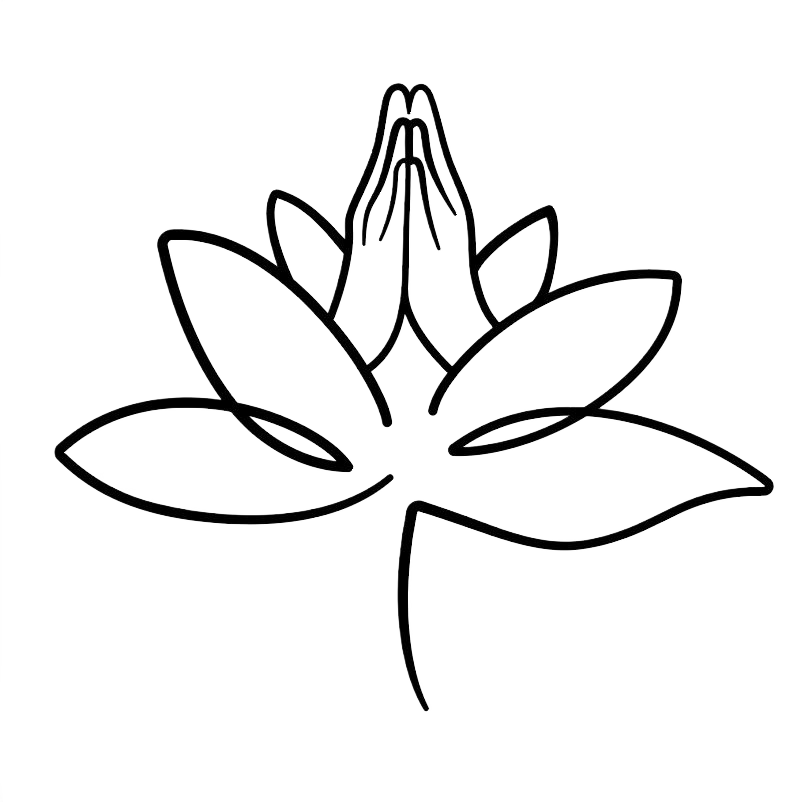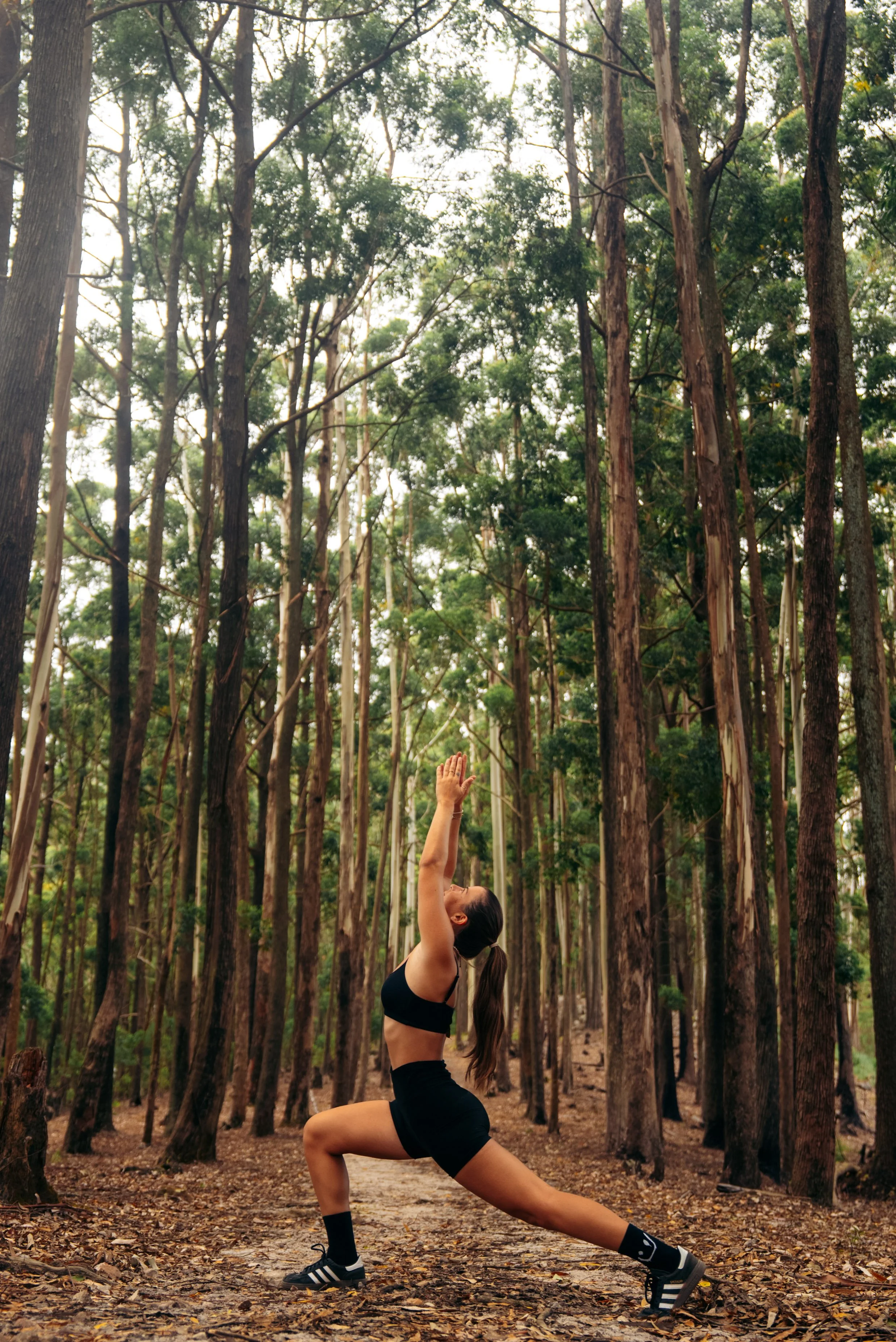From Discomfort to Liberation
For thousands of years, the benefits of yoga have been proven both scientifically and spiritually. In my previous articles, I spoke of yoga as a spiritual practice, a way of life that elevates one’s essence and true identity. Here, I want to approach yoga from another angle as a physical and psychological practice that can often feel uncomfortable, in the sense that it brings to light our pain, our wounds, and sometimes even our traumas. A trauma is a physical or emotional shock that alters our state of consciousness and rational thinking.
There are plenty of articles online that explain the many benefits of yoga. If I’m sharing mine here, it’s because I’ve experienced them myself. And I believe that some stories, especially the more technical or distant ones, aren't always accessible to everyone. So here, I want to tell my story in my own words.
My yoga journey started during the Covid period. At that time, I was working over 45 hours a week in a fast-food restaurant. I had been living in Switzerland for just over a year, I didn’t speak German, and I felt isolated in this unfamiliar environment. I’d always been active, but I was looking for something that could make me feel good: physically, emotionally without being about performance or appearance.
One day, in my apartment, while browsing YouTube, I stumbled upon a low-quality yoga video. Out of curiosity, I clicked and rolled out my mat. On that mat, I discovered a connection between the movement of my body and the state of my mind: a connection woven through breath. I noticed that by bringing awareness to my breathing, it naturally deepened and gave me a sense of calm.
When I shared this discovery with my older sister, she mentioned Adriene Louise, a well-known yoga teacher on YouTube. From that point on, I started practicing yoga morning and night. I couldn’t quite explain it, but even though some poses were difficult, I felt good. I felt connected to my sensations and thoughts but not ruled by them.
Very quickly, I started looking for a yoga studio, and I realized that yoga was everywhere. It opened up a whole new world to me. I began attending several classes a week. In a conversation with Liliane, my teacher at the time, I asked her how she had become a yoga instructor. A few months later, I enrolled in a teacher training program myself. At that point, I was working 45 hours a week in a supermarket, and I was spending my weekends immersed in yoga training.
Naively, I thought I would simply deepen my understanding of yoga. I never imagined I would end up learning so much about myself. That six-month training brought to the surface toxic behaviors and old wounds I now had to face. I realized that emotions are stored in the body and if we don’t take care of them, they eventually affect us both mentally and physically.
I also discovered that yoga is like a mirror: an inner practice more than a physical one. Six months later, I felt like I had gotten to know myself better, understood how I function, become aware of my thoughts, my body in space, and my interactions with the world around me. And yet, even with all this knowledge, I felt like I understood yoga… but didn’t truly know it yet. So I decided to keep going, to keep growing my practice.
Since that training, I try to practice yoga regularly. I truly believe you can’t really understand yoga unless you practice it. From this discipline, a passion was born, one I never expected to find.
The Benefits of Yoga
The physical and psychological benefits of yoga are many. Here are a few that I’ve experienced through regular practice:
Muscle Strengthening
Through the asanas (postures), muscles are activated and strengthened deeply. Every pose in yoga brings its own benefits. For example, Downward-Facing Dog strengthens the arms, wrists, and legs, while lengthening the spine and hamstrings. It also calms the mind, reduces stress, and improves blood circulation.Increased Physical and Mental Flexibility
Postures combined with breath help release tension held in the body. Certain poses, held in discomfort, challenge our mental limits. Becoming aware of these limits and choosing not to be ruled by them, makes us more flexible, more understanding, and more adaptable.Breath Control and Lung Expansion
The most important part of yoga isn’t how the posture looks from the outside, but how you breathe through it. When movement is synchronized with breath, it leads to deep relaxation. Conscious breathing quiets the mind and releases physical tension. In Yoga the practice of conscious breath trough different techniques it’s called Pranayama.Pain Release and Body Awareness
Holding certain poses with fluid breath allows us to feel our tension, understand our body, create space within, and release what’s been held for too long. Meditation helps us sit with ourselves, observe without judgment, and cultivate inner stillness.Awareness of Mental and Physical Distractions
Yoga requires consistency and discipline. It sheds light on our avoidance patterns, our distraction: everything that pulls us away from the present moment. By observing these habits, we move closer to true freedom, both physical and mental.
The benefits of yoga are countless. Here, I’m only sharing a small part of what I’ve experienced over the past three years. Yoga requires courage, the courage to face yourself, your mind, your pain, your sensations.
In today’s society, we often seek to escape our reality, to numb the discomfort of the body and mind through distractions: extreme sports, food, drugs… But sometimes, facing ourselves is the only way to reclaim the reins of our life. And by control, I don’t mean a well-checked to-do list, I mean a genuine state of self-awareness, one that keeps us from being manipulated by society or by others. Taking full responsibility for our mindset and choices is the path to true freedom.
When we understand that our life belongs to us, we meet its challenges with greater wisdom, and we no longer fall for false beliefs.
If yoga doesn’t resonate with you, find your own path, the one that helps you know yourself, face yourself, grow, and most importantly, experience life. Take a few minutes to sit with yourself, in a café, in a forest… Learn to know who you are before you try to define yourself. Don’t let others or your surroundings do it for you.
You won’t live fully in the comfort of your habits. Discomfort is rarely pleasant, but it’s always revealing. The next level of your life won’t come from repeating past actions. Aren’t you curious to discover who you could become on the other side?
In the Bhagavad Gita you can read : "Through constant practice and detachment, the mind can be brought under control."
- namastecharly

